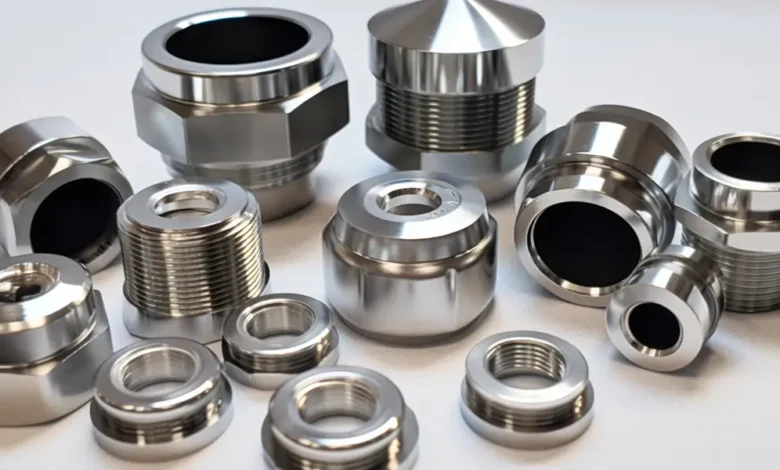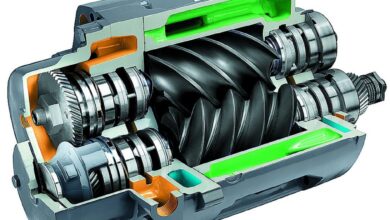Caps and Plugs: Essential Components for Sealing and Protection in Various Industries

In the vast and complex world of manufacturing and maintenance, small components often play outsized roles. Caps and plugs, for example, are ubiquitous in virtually all industrial sectors, serving critical functions such as sealing, protection, and contamination prevention. When it comes to delivering these custom solutions, reliability and precision are paramount. Companies like Caps And Plugs specialize in the production of these vital components, understanding the subtleties of different industrial needs. Their expertise enables them to craft caps and plugs that can cope with the specialized demands of various industry sectors. Keep reading to gain a more profound understanding of these pivotal components.
Caps and Plugs: A Vital Solution for Industry Challenges
Caps and plugs carry the responsibility of safeguarding crucial equipment components during storage, shipping, and handling. They effectively seal off tubing, pipes, and other openings from environmental contaminants that could compromise system integrity. Various industries, from automotive to petrochemical, rely on these elements to maintain the cleanliness and functionality of their equipment.
The versatility of caps and plugs is reflected in their ability to adapt to different shapes, sizes, and materials. This flexibility makes them invaluable for maintenance procedures and production processes, where precision-fit sealing is requisite. They also serve as buffering agents, protecting the edges and surfaces of machine parts against wear and damage during movement or while in operation.
In the context of environmental sustainability, caps and plugs also contribute to overall safety and waste reduction. By preventing leaks and spills, they ensure that hazardous materials do not escape into the environment.
The Critical Role of Caps and Plugs in Protecting Equipment
The application of caps and plugs extends beyond the initial manufacturing process. They play a significant role in the day-to-day operation of equipment, preventing the intrusion of dust, dirt, and moisture, which can cause costly breakdowns. Their use is evident in sectors where impeccable cleanliness is non-negotiable, such as in pharmaceutical production or semiconductor manufacturing.
Moreover, during repair and maintenance, caps and plugs ensure that open lines and fittings are secure, maintaining the system’s integrity until reassembly. This protection is essential in minimizing downtime, as it allows for the quick resumption of normal operations following maintenance work. It is also crucial in preventing cross-contamination between different substances within a system.
In fluid systems, caps and plugs maintain the purity of liquids and gases that flow within. By providing a reliable seal, they prevent the degradation of fluid quality, which can directly affect the performance and efficiency of the equipment. In industries like hydraulic machinery or fuel systems, this is particularly vital to safeguard against costly failures or subpar performance.
Material Considerations for Caps and Plugs in Harsh Environments
Material selection is critical when considering the utility of caps and plugs in various industrial environments. For high-temperature applications, for instance, components made from silicone or heat-resistant polymers are commonly employed to maintain their protective properties without degradation. Conversely, low-temperature environments might require materials with high impact strength and flexibility at sub-zero temperatures.
Chemical resistance is another significant material consideration. In petrochemical applications or scenarios where harsh solvents are used, caps and plugs must be made from materials that can resist corrosion and maintain their structural integrity. This ensures they will not break down or contaminate the substances they are designed to protect.
For food and beverage or medical industries, caps and plugs must meet stringent hygienic standards. Materials must be non-toxic, non-reactive, and able to withstand frequent cleaning with aggressive sanitizing agents. Compliance with relevant regulatory standards, for instance, the U.S. Food and Drug Administration (FDA) guidelines, is essential for components used in these sensitive applications.
Custom Caps and Plugs for Specialized Industrial Applications
Off-the-shelf caps and plugs are suitable for many standard applications; however, certain scenarios call for custom solutions. Custom caps and plugs are designed to meet unique specifications that generic parts cannot fulfill. These products can be tailored for atypical sizes, complex geometries, or specific performance requirements dictated by a particular industrial application.
3D printing technology has revolutionized the design and production of custom caps and plugs, providing the ability to rapidly prototype and manufacture parts with precision. This has proved indispensable in sectors such as aerospace and defense, where components often need modifications to meet rigorous performance criteria under extreme conditions.
Integrating such customized elements into machinery or systems can result in enhanced performance, reduced wear, and improved safety. Working closely with suppliers who can provide custom caps and plugs ensures that industry professionals can protect their equipment and maintain the highest standards of operation. The ongoing innovations in their design and manufacturing promise to further enhance their utility and performance, meeting the evolving challenges of modern industrial needs.
Also Read: luxury villas greece le collectionist


